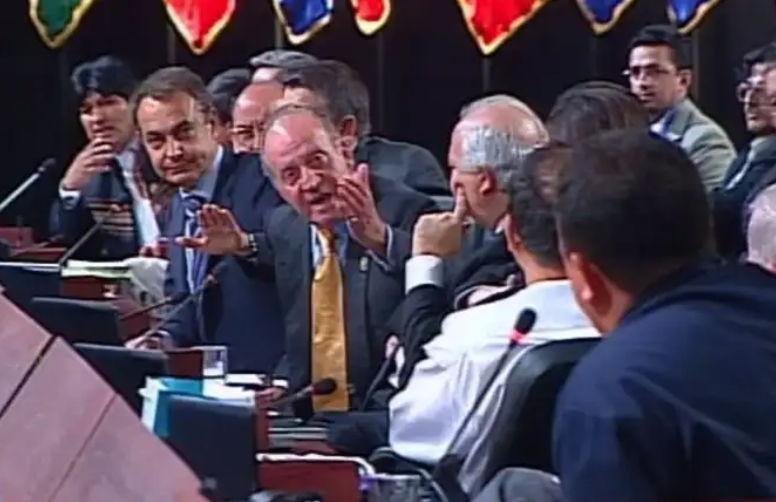To articulate relations between states is an old subject. In modernity, Kant and others laid the foundations of a supposed order that was shaped by reason. Thus, the law took hold and began to establish a series of principles that were projected into institutions. The action of these, together with the constant interpretation of increasingly complex decisions, gradually constituted a certain type of order that inevitably coexisted with a reality that was not always that defined by the rules. More or less since Westphalia (1648), this has been the case.
The American independences almost coincided with the early maturity of that order of ideas, so that the Congress of Panama, convoked by Simón Bolívar in 1826, was the genuine representative of a proposal for union or confederation of the new American states that, in spite of the adequate theoretical approach, was ended in failure.
The history is well known since then, with a succession of frustrating attempts of very diverse order. Their varied nature, sometimes dominated by the subregional, sometimes by the economic, and sometimes by the simple attempt at thematic coordination, was not an obstacle to ensuring the path to success. The string of acronyms from the 1960s onwards is abundant: ALALC, ALADI, SELA, CARICOM, CACM, Andean Pact (Andean Community), MERCOSUR, UNASUR, CELALC, etc.
These are joined by the Organization of American States (OAS), an organization that undertook different initiatives and activities since the end of the 19th century, and which was established in Bogotá in 1948 when the ninth International Conference of American States signed its founding charter. Settled at the beginning of the Cold War and under the tutelage of the United States, which offered the city of Washington as its headquarters and committed a juicy part of its budget, the OAS was seen as an unquestionable device of U.S. hegemony over the region.
This aspect was reaffirmed after the success of the Cuban revolution and the expulsion of Cuba from the OAS in 1962 because “the adherence of any member to Marxism-Leninism is incompatible” with the inter-American system itself, and three years later when the organization gave carte blanche to U.S. military intervention in the Dominican Republic.
The OAS languished for years, but on September 11, 2001, it took a giant step forward by approving the Inter-American Democratic Charter in Lima. Its first article proclaimed the right of the peoples of the Americas to democracy and the obligation of their governments to promote and defend it. This was no trivial matter since it required conceptual precision regarding a complex term.
The third article emphasized the commitment by stating as “essential elements of representative democracy include, inter alia, respect for human rights and fundamental freedoms, access to and the exercise of power in accordance with the rule of law, the holding of periodic, free, and fair elections based on secret balloting and universal suffrage as an expression of the sovereignty of the people, the pluralistic system of political parties and organizations, and the separation of powers and independence of the branches of government”.
This was in line with the progress made in politics in the region after leaving behind the transitions to democracy and, at the same time, a declaration of intent of what the future was not meant to be. However, it was at odds with the nuances that were being introduced in political science in a new line of study that argued for the existence of different degrees of quality of democracy or even the need to distinguish between varieties of democracy.
The Summit of the Americas to be held from June 6 to 10 in Los Angeles will be a new opportunity to rethink the state of the question. It originated in Miami in 1994, when Bill Clinton convened the first one, which resulted in the tempestuous initiative of the Free Trade Area of the Americas. Those were times of consolidation of democracy and the spread of neoliberalism. Although U.S. sponsorship is paramount, Donald Trump did not attend the 2018 Lima summit.
In the prolegomena of the current one, leaving aside the no less outstanding issue regarding the role of the democratic component of the political regimes of the convened countries, there are at least three types of major questions that have been illuminating the debate. They respond to general issues that are deeply interconnected: who convenes, what are the criteria for being convened, and what is the purpose?
The establishment of an agenda and the definition of the list of invitees and their rank are always subtle mechanisms of power that occur in any pluralistic convocation. If the principle of not excluding anyone is established as a principle, is it not also necessary to define at the same time who someone is? If non-interference in internal matters is claimed, does this mean that there are matters that are off-limits when it comes to setting the agenda?
The casuistry with its implications is always different; there are no equal scenarios due to the weight of the past and the size of the actors. The impact of anti-Castroism, historically entrenched in the U.S. politics, making Cuba as a domestic issue, is not the same as the conditioning factors of the oil sector with respect to the Venezuelan case.
In the face of both disputes, whose importance is notorious, the Nicaraguan issue is hardly relevant. The reasons of the Brazilian president, involved in an electoral process in which he may risk jail, are not similar to those of the opprobrious Guatemalan president with his permanent manipulation of justice. The concerns of the American president, immersed in a severe economic crisis and with a leadership entangled in the war in Eastern Europe, are also very different. As for Mexico, its decades of regional introspection weigh down an immediate past that the current president wants to rebuild with a reborn American vocation.
In view of the previous failures and the murky preamble to the next summit, there is an urgent need to build a new logic of interaction. In this sense, it is worth recalling what happened in 2007, within the framework of the Ibero-American Summits, when the very unedifying head of the Spanish state urged the ill-tempered Venezuelan president to be quiet.
Chávez, who was making use of his freedom of speech, had called the former head of the Spanish government a fascist. The incident had its positive side: free dialogue in a forum where no one was banned. If today we are confronted with tragic issues linked to emigration, environmental disaster, and organized crime that demand transnational collaboration, is it not time to open up spaces for dialogue in which those who attend are subject to the scrutiny of others?
Translated from Spanish by Janaína Ruviaro da Silva












